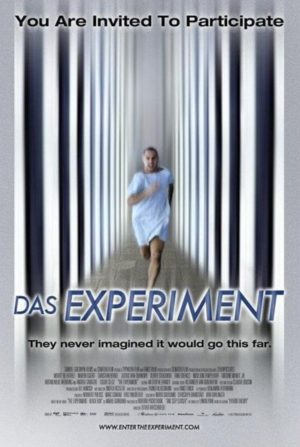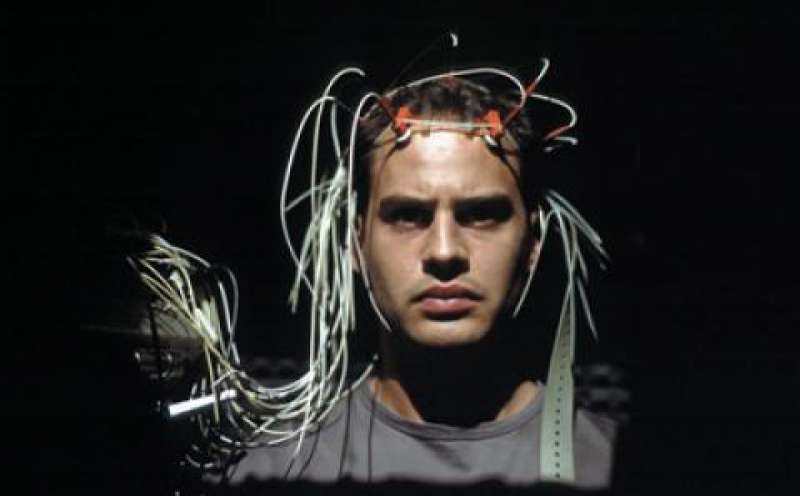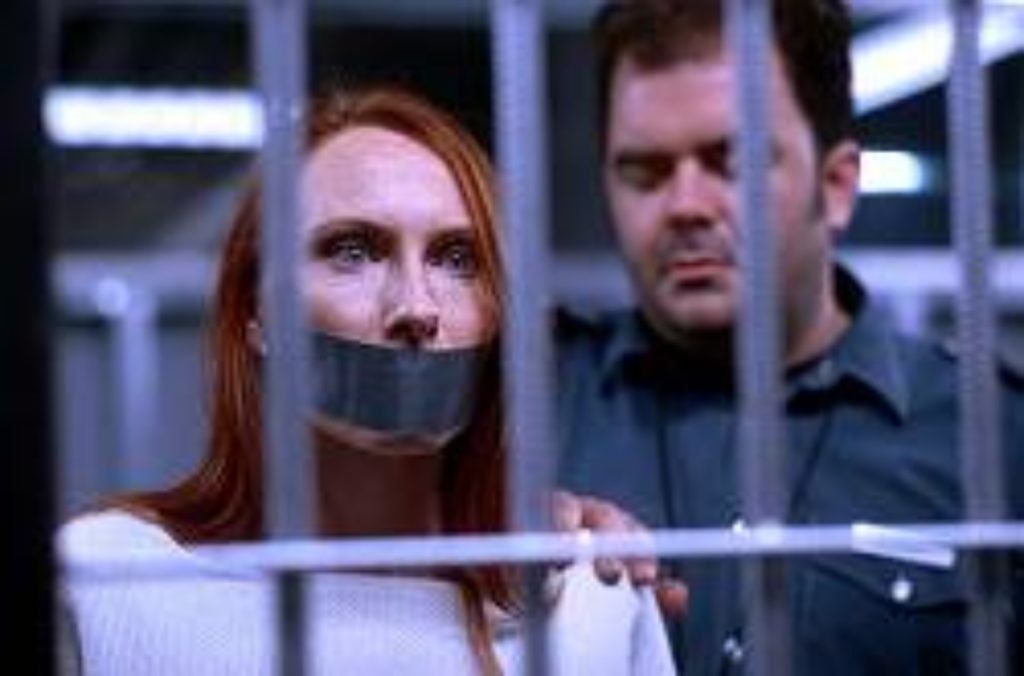 A powerful and fascinating piece of work, and one of the absolute finest films of 2002. Love it or hate it, this German masterwork is guaranteed to lodge a permanent place in your psyche.
A powerful and fascinating piece of work, and one of the absolute finest films of 2002. Love it or hate it, this German masterwork is guaranteed to lodge a permanent place in your psyche.
…guaranteed to lodge a permanent place in your psyche.
DAS EXPERIMENT is a product of the New New German Cinema. The old NGC occurred in the seventies, and introduced us to the works of filmmakers like Werner Herzog, Wim Wenders and Rainer Werner Fassbinder. Since then, not a whole lot occurred in German cinema until 1999, when the international smash RUN LOLA RUN (LOLA RENT) made its bow–it’s no coincidence that DAS EXPERIMENT features Moritz Bleibtreu, one of LOLA’S main cast members, in the lead role.
DAS EXPERIMENT is also notable for the fact that its subject matter—an experiment in leadership gone disastrously wrong—is so particularly well suited to the land that birthed the Third Reich (the ultimate experiment in failed leadership). That it was Germany who gave us such a perceptive look at emerging fascism is a cause for hope (no matter how much director Oliver Hirschbiegel claims that all such parallels were unintentional). It was remade, poorly, in 2010 as THE EXPERIMENT by writer/director Paul Scheuring (creator of TV’s PRISON BREAK).
This film is based upon an actual experiment conducted by Dr. Philip Lombardo at Stanford University back in 1971.
Tarek, a sometime journalist, decides to take part in a psychological experiment so he can later write about it. Said experiment consists of gathering up 20 men off the street and dividing them into prisoners and guards inside a nightmarish, antiseptic research facility. After a lengthy prologue where the hero gets involved with an attractive woman he meets in a car accident (the weakest part of the film), the experiment gets underway. Things start out innocently enough, with much joking around, but quickly turn ugly as Tarek’s naturally rebellious nature asserts itself and the “guards” grow resentful. This leads to an increasingly brutal series of prisoner-guard confrontations as fascism asserts itself with a vengeance, leading to some truly disturbing business that apparently caused fainting in a number of festival screenings.
This film is based upon an actual experiment conducted by Dr. Philip Lombardo at Stanford University back in 1971. Lombardo reportedly terminated the exercise early, as the “guards” turned fascistic extremely quickly, meaning this film’s story is NOT, as some critics have ignorantly concluded, sensational and unrealistic. In point of fact, it couldn’t be more convincing. It takes Lombardo’s experiment to its hideous extremes, as the faux guards mercilessly humiliate and brutalize their charges, eventually taking over the research facility’s headquarters for an astonishingly violent climax.
audacious, unflinching and just plain exciting as hell

Stylish, energetic and efficient are the words to describe Oliver Hirschbiegel’s work on DAS EXPERIMENT, his first feature, not to mention audacious, unflinching and just plain exciting as hell. DAS EXPERIMENT is, quite simply, one of the most impressive debut films of recent years. Yes, the opening scenes, which utilize a number of ill-advised Nicholas Roeg-ish time jumps, taxed my patience somewhat, but once the experiment begun I was hooked—meaning if you’re an audience member and are planning to walk out, you’d better do so within the first twenty minutes, because you will NOT be able to later on!
It could be argued that the climax, which incorporates a (somewhat implausible) break-out, an attempted rape, a mad race back to the facility by its vacationing head and an impromptu visit by the hero’s girlfriend, all at the same time, may be a tad farfetched in light of the near-documentary realism of the rest of the film, but Hirschbiegel carries it off with such panache—and unbearable suspense—that, well, who really cares?
Vital Statistics
DAS EXPERIMENT (THE EXPERIMENT)
Samuel Goldwin Films/Senator Film
Director: Oliver Hirschbiegel
Producers: Marc Conrad, Norbert Preuss, Friedrich Wildfeuer
Screenplay: Don Bohlinger, Christoph Darnstadt
(Based on the novel BLACK BOX by Mario Giordano)
Cinematography: Rainer Klausmann
Editor: Hans Funck
Cast: Moritz Bleibtreu, Christian Berkel, Oliver Stokowski, Wotan Wilke Mohring, Stephan Szasz, Polat Dal, Danny Richter, Ralf Muller, Justus Von Dohnanyi

